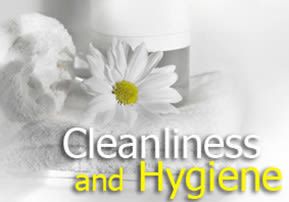
Cleanliness and Hygiene
Physical cleanliness and spiritual purity are two different sides of cleanliness. Both are bound up with each other. The Torah teaches us to...

(Editor’s note: this series is written for parents. Although much of the material here seems basic, it’s important to realize that our physical health strongly impacts our spiritual development.)
Rabbi Akiva said: “Once I followed Rabbi Yehoshua into the restroom and I learned three things from him…” Ben Azai said to Rabbi Akiva, “How could you be so bold with your teacher?” Rabbi Akiva replied: “It is Torah, and I need to learn!” (Berachot 62a).
Teaching our children about cleanliness begins practically from the moment they are born. We go to great efforts to keep our children clean, and also to separate them from what is spiritually impure. Not only do we wash and bath them and change their diapers. We also wash even little children’s hands with Negelwasser when they wake up from their night’s sleep in order to remove Tum’ah, the unclean night-time spirit. Not only do we teach our children to use the toilet and clean themselves properly. We also train them to wash their hands on leaving the bathroom and the like, and also before prayer and Torah study. We teach them to clean and wash their hands very well before touching food. We also teach them Netilat Yadayim, ritual washing of the hands before eating bread.
The message we are giving our children is that we must keep ourselves clean, and also, we must keep ourselves pure. Physical cleanliness and spiritual purity are two different sides of cleanliness. Both are bound up with each other. The Torah teaches us to clean our bodies of their waste products and to dispose of them properly. The purpose is to keep ourselves and our surroundings clean. Only then can God’s spirit dwell among us: “Your camp must be holy” (Devarim 23:15).
The cleanliness of our bodies and surroundings is one of the principal foundations of purity. We are not allowed to say words of prayer or Torah when our bodies are not clean or in a place that is not clean. Not only does physical cleanliness contribute to our general sense of well-being. Physical cleanliness is essential for good health. The body can only function properly when it cleanses itself of its various waste products. We must play our part in the cleansing process by with proper habits of toilet, washing and general cleanliness.
Waste and dirt are the breeding grounds of harmful microbes that cause infections and illness. To avoid harm and illness, we are obliged to follow the rules of cleanliness and hygiene. This is part of the commandment, “Take care of your souls”. Then our bodies will be a fit vessel fit to carry out God’s laws and a worthy sanctuary for the soul.
Teaching children about cleanliness and hygiene
There are no fixed rules about when to start training children in proper habits of hygiene and cleanliness. Most parents have an intuitive understanding of their children, and will know when to start and how to guide each child in accordance with his or her age, character and level of development.
The first step
The obvious first practical step is when we start teaching children to use the toilet and everything that goes with this. This is usually around the age of two or three, sometimes earlier, sometimes later. Training a child may take anywhere between four or five weeks to six months or more. Parents seeking guidance in toilet-training a child can turn to others who already have experience or to a doctor.
In the first stages of teaching a child to use the toilet, each time the child needs to go, the parent (or home help, nursery teacher, etc) goes with the child to help him. This is the time to start teaching the child in his language and according to his level of understanding that dirt and waste are not good for us and we must remove them from our bodies and flush them away. For this very reason, we must not hold back when we need to attend to our needs. As soon as we feel the need, we should go as soon as possible.
We must teach the child to clean himself properly, and then wash his hands thoroughly with soap and water. The next step is to encourage the child to manage independently in the restroom without needing help, being sure to practice the rules of cleanliness and hygiene that he has learned.
Washing hands
Washing our hands after our night-time sleep, before prayer, before eating bread, after attending to our bodily needs and on other occasions is an integral part of the daily life of the Jew. Our children need to learn that having clean hands and having pure hands are two things that are bound together. We teach them that there is an obligation to wash their hands before bread (Netilat Yadayim). It is also important to teach them that their hands must be clean. Washing our hands in order to clean them does not exempt us from Netilat Yadayim. So too, Netilat Yadayim does not exempt us from first making sure that our hands are clean!
As children grow older and become more understanding, we should explain to them why we must keep our hands clean. We carry millions of tiny microbes on our hands. Most are not harmful, but some can cause infections, diarrhea, parasites, flu and even more serious illnesses. Harmful microbes can pass onto our bodies from contact with dirt in the toilet, dirty towels, door handles, stair-rails and the like handled by people carrying infectious microbes. If we touch our mouths, nose, ears, eyes or an open cut or wound with dirty hands, these microbes can enter inside our bodies. Thorough washing of the hands greatly reduces the risk of infection by these microbes.
Children should be taught to wash their hands carefully
AFTER
1. Leaving the toilet or bathroom
2. Touching garbage and anything dirty (including children’s play-sand).
3. Touching a dirty nose
4. Touching an open cut or sore
5. Touching an animal, bird or insect
6. Touching raw meat or fish
BEFORE
1. Touching food
2. Eating
3. Tending a cut or sore
4. Inserting or removing contact lenses
The hands should be washed with soap and water. When hot water is not available, the hands should be washed thoroughly with cold water and soap. The entire surface of the hand should be washed up to the wrist, including the palms and back of the hands, the fingers and under the nails. The hands should be rubbed together with soap and rinsed well with water. The hands should be dried with a clean towel, preferably disposable, or with a hand-drying machine.
Factors that contribute to better standards of hygiene and cleanliness include:
1. Adequate supplies of toilet paper
2. Soap for washing of hands
3. Clean towels. Where possible in educational and other institutions, these should be disposable, or hand-drying machines should be provided.
4. It is best to keep children’s nails short, and they should be taught the importance of keeping them clean.
5. Parents should provide their children with tissues to clean their noses.
6. Parents and teachers must repeatedly remind children about the importance of keeping their hands clean in order to make sure that the message gets across.
Washing the body
“The one who tends to his soul is the man of kindness” (Mishlei 11:17). This verse applies to Hillel the Elder! When he used to leave his students and go on his way, they would accompany him and ask: “Rabbi, where are you going?” “To carry out do a mitzvah,” he would reply. “Which mitzvah is that?” “To wash in the bath-house.” “Why?” they would ask. “Is it a mitzvah to wash?” “Yes,” he replied. “The statues of kings that stand in public theaters and circuses have a special officer whose job is to rinse and scrub them to keep them clean. They pay him for this, and he sits with the elite of the kingdom. How much more so must I wash and clean myself. For I am made in the form and likeness of the King of kings, as it is written “For He made man in the likeness of God” (Bereishit 9:6; Vayikra Rabbah 34:3).
When parents take care to keep their children clean from the earliest age, consciousness of cleanliness and its importance penetrates deep inside the children. Everything parents do to keep their little children clean, rinse their hands and faces, wash and bath them, is a part of helping them acquire clean habits. As they grow older, we should explain to them according to their understanding why it is so important for them to keep their bodies clean. This way they will come to do so of their own accord.
We should explain to our children in addition to the good feeling when we are clean, first and foremost we are thereby guarding our health. The skin is one of the most important body parts, even though many people don’t pay too much attention to it unless there is a problem. The protective coat with which God in His wisdom has our bodies not only protects us from harm from the world around us. Our skin also plays an important role in the elimination of certain bodily waste products. Our task is to wash and clean our skin to keep it healthy.
Water has an essential role in keep the body clean, and we should teach our children to wash regularly. The frequency with which one needs to wash varies from person to person depending on individual physical factors, daily activity, environment, the weather and other factors. Just as it is no good to wash too little, so there is no need to exaggerate.
It is best to wash the body in warm water using a delicate soap. An important part of washing is thorough rinsing of all traces of soap in order to avoid irritation. Children should be taught to dry themselves well after washing.
Regular washing of the hair is an important part of overall bodily cleanliness. Having clean, orderly hair gives a good feeling and contributes to a pleasing appearance. When children’s hair is clean and healthy, this also helps against the “Third Plague” – lice.
Clean nails are also an important part of bodily cleanliness. Parents should cut their children’s nails, hands and feet, before they grow too long. It is good to teach children that cutting nails is one of the things we do each week prior to and in preparation for Shabbos. Any time that dirt gathers under the fingernails, they should be brushed with soap and water. It is worth teaching children how to cut the nails of their big toe in such a way as to avoid ingrown toenails.
Even though the specific obligation is only to wash the hands [each morning], nevertheless it is a mitzvah also to wash ones face, for “God made everything for His sake” (Mishlei 16:4). The body is created to serve God and is the garment of the soul – and “man’s soul is God’s lamp” (ibid. 20:27). It is proper to show respect for the garment in the same way as a king’s officers take good care to keep the garments they receive from the king them free of all dirt. In the same way, it is proper to wash one’s face and keep it clean. Similarly, the clothes a person wears – and this applies particularly to a Torah scholar – should be kept clean and free of all dirt (Chayey Adam 2:6).
To be continued…
(With permission from www.azamra.org)


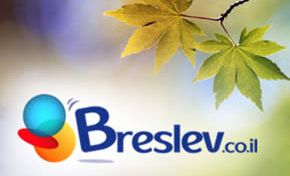

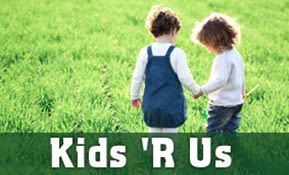
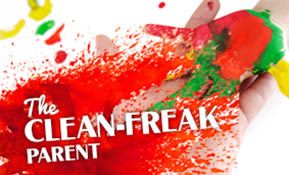

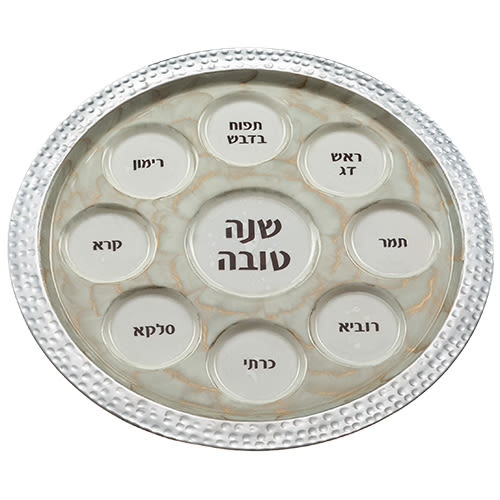
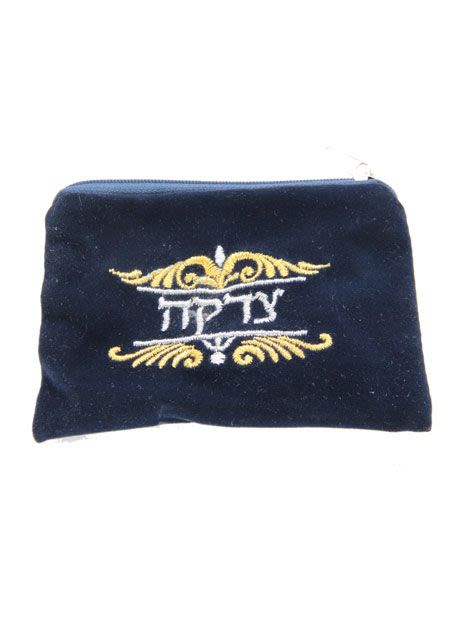
Tell us what you think!
Thank you for your comment!
It will be published after approval by the Editor.